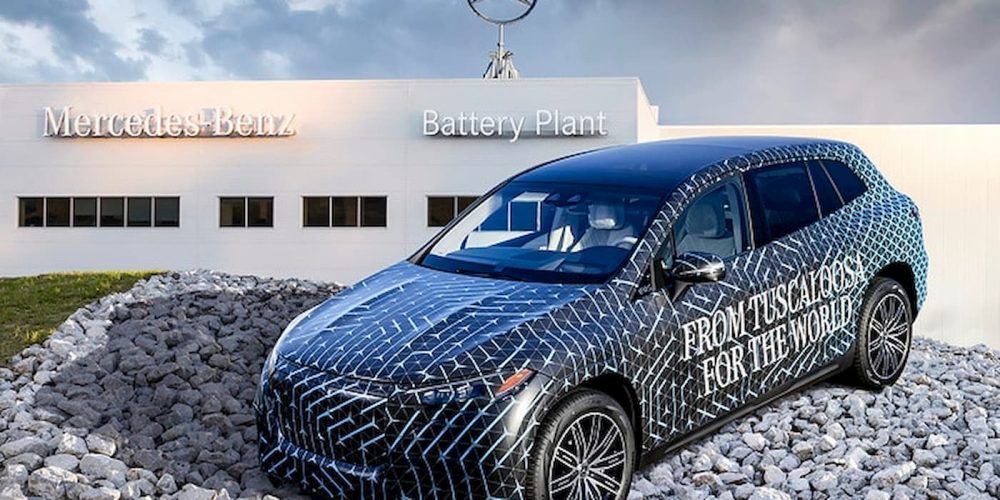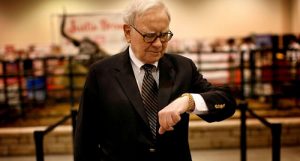After climate bill passes, automakers race to make EV batteries in the US
Just two weeks after President Biden signed the Inflation Reduction Act (also known as the climate bill) into law, we are already seeing the positive effects ripple through the US economy. Global automakers are racing to source and assemble EV components in the US as new tax incentives from the climate bill expect to drive significant demand for electric vehicles.
The new tax credits stemming from the climate bill make it easier for consumers to access clean, sustainable energy options.
One of the most significant inclusions is the tax credit for electric vehicle buyers. As part of the bill, EV buyers can receive a tax credit of up to $7,500 for new EVs and $4,00 for used ones.
However, the model must go through final assembly in North America for an automaker’s EV to be eligible for the credits. On top of this, the automaker must source EV battery components from North America or its free trade partners.
The purpose of this is to bring manufacturing back to the US and stimulate the economy, and so far, it’s doing a pretty impressive job in only two weeks. Major automakers like Mercedes-Benz, Volkswagen, Honda, and Hyundai have all announced deals since the climate bill was signed to source EV components in North America.
Mercedes-Benz battery factory in Alabama Source: Mercedes-Benz
Climate bill creates a new ‘gold rush’ on US soil
After finding shiny gold nuggets in Sacramento Valley in 1848, voyagers traveled from around the world to join what would become known as the California gold rush.
As the news spread of fortunes being made on the California Coast, travelers dropped everything to join the search.
In a similar scenario, automakers are looking for gold on US soil. After President Biden signed the new climate bill, automakers are scrambling to establish their position.
Here are a few of the biggest updates since the Inflaton Reduction Act was passed.
Hyundai, which was already planning to build EVs in the US, is reportedly considering speeding up the timeline and may start construction on its dedicated EV plant in Georgia later this year rather than waiting until 2023.
Volkswagen and Mercedes-Benz signed agreements to source EV battery raw materials from Canada. German Chancellor Olaf Scholz and Canadian Prime Minister Justin Trudeau were both in attendance at the historic signing.
Mercedes-Benz said it will be sourcing 10,000 tons of lithium from Rock Tech, a Canadian mining company.
Honda is forming a joint venture with LG Energy. The JV is investing $4.4 billion into a new US battery plant that expects a 40 GWh annual capacity.
And this is just the start. Volkswagen, Mercedes-Benz, Hyundai, and Honda are all looking to grab their share of the lucrative US EV market.
President Biden has set a goal for the US to achieve a 50% EV share of total car sales by 2030. Getting there will take investments from both the government and automakers. But, so far, the climate bill is doing exactly as designed, bringing the future of the auto market to the US as EV makers rush to grab their seats at the table.
Electrek’s Take
It’s only been two weeks since the climate bill was signed into law, and we can already see the positive effects.
Did you know after World War II and the great depression, nearly 75% of all automobiles were made in the US? The US was once the promised land for automakers. Then, the industry fell as higher oil prices and foreign competition slowed the growth of US automakers.
Now, the US looks to be the place to build vehicles again. Only this time, automakers are looking toward the future as they lock up deals for critical EV and battery components.
Subscribe to Electrek on YouTube for exclusive videos and subscribe to the podcast.

Just two weeks after President Biden signed the Inflation Reduction Act (also known as the climate bill) into law, we are already seeing the positive effects ripple through the US economy. Global automakers are racing to source and assemble EV components in the US as new tax incentives from the climate bill expect to drive significant demand for electric vehicles.
The new tax credits stemming from the climate bill make it easier for consumers to access clean, sustainable energy options.
One of the most significant inclusions is the tax credit for electric vehicle buyers. As part of the bill, EV buyers can receive a tax credit of up to $7,500 for new EVs and $4,00 for used ones.
However, the model must go through final assembly in North America for an automaker’s EV to be eligible for the credits. On top of this, the automaker must source EV battery components from North America or its free trade partners.
The purpose of this is to bring manufacturing back to the US and stimulate the economy, and so far, it’s doing a pretty impressive job in only two weeks. Major automakers like Mercedes-Benz, Volkswagen, Honda, and Hyundai have all announced deals since the climate bill was signed to source EV components in North America.
Climate bill creates a new ‘gold rush’ on US soil
After finding shiny gold nuggets in Sacramento Valley in 1848, voyagers traveled from around the world to join what would become known as the California gold rush.
As the news spread of fortunes being made on the California Coast, travelers dropped everything to join the search.
In a similar scenario, automakers are looking for gold on US soil. After President Biden signed the new climate bill, automakers are scrambling to establish their position.
Here are a few of the biggest updates since the Inflaton Reduction Act was passed.
- Hyundai, which was already planning to build EVs in the US, is reportedly considering speeding up the timeline and may start construction on its dedicated EV plant in Georgia later this year rather than waiting until 2023.
- Volkswagen and Mercedes-Benz signed agreements to source EV battery raw materials from Canada. German Chancellor Olaf Scholz and Canadian Prime Minister Justin Trudeau were both in attendance at the historic signing.
- Mercedes-Benz said it will be sourcing 10,000 tons of lithium from Rock Tech, a Canadian mining company.
- Honda is forming a joint venture with LG Energy. The JV is investing $4.4 billion into a new US battery plant that expects a 40 GWh annual capacity.
And this is just the start. Volkswagen, Mercedes-Benz, Hyundai, and Honda are all looking to grab their share of the lucrative US EV market.
President Biden has set a goal for the US to achieve a 50% EV share of total car sales by 2030. Getting there will take investments from both the government and automakers. But, so far, the climate bill is doing exactly as designed, bringing the future of the auto market to the US as EV makers rush to grab their seats at the table.
Electrek’s Take
It’s only been two weeks since the climate bill was signed into law, and we can already see the positive effects.
Did you know after World War II and the great depression, nearly 75% of all automobiles were made in the US? The US was once the promised land for automakers. Then, the industry fell as higher oil prices and foreign competition slowed the growth of US automakers.
Now, the US looks to be the place to build vehicles again. Only this time, automakers are looking toward the future as they lock up deals for critical EV and battery components.
Subscribe to Electrek on YouTube for exclusive videos and subscribe to the podcast.


